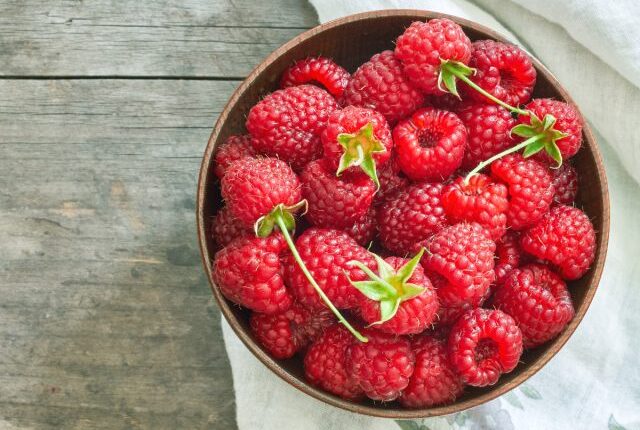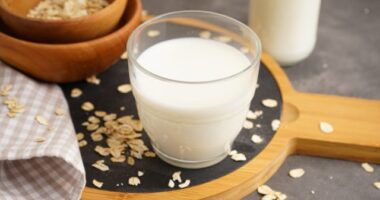When you think of fiber-rich foods, what usually comes to mind? Perhaps whole grains, beans, Raisin Bran, or even your grandma’s Metamucil supplement. While these are great sources of fiber, one food group that often flies under the radar but is essential for a diet rich in fiber is fruits. Unlike processed snacks that lack nutrients, high-fiber fruits offer vital vitamins, minerals, and antioxidants while helping you stay full for longer periods. To guide us on the healthiest high-fiber fruits to incorporate into our diet, we sought advice from Chris Mohr, PhD, RD, a registered dietitian and Nutrition Advisor at BarBend, who shares his top 10 choices and provides expert tips on incorporating them into your meals.
According to the Centers for Disease Control and Prevention, consuming fiber can enhance digestion, stabilize blood sugar levels, and aid in weight management by prolonging satiety. These fruits serve as a fantastic source of dietary fiber, which has been proven by studies to be crucial for heart health as it helps reduce cholesterol and inflammation levels. Moreover, many high-fiber fruits are packed with antioxidants that combat harmful free radicals in the body and support a robust immune system.
Thankfully, incorporating these fiber-rich fruits into your daily eating routine is simpler than you might imagine. Stay tuned for our top 10 picks of the healthiest high-fiber fruits you can add to your diet. Once you’ve gone through the list, don’t forget to explore these 11 High-Fiber Lunches That Will Help You Stay Full.
Raspberries
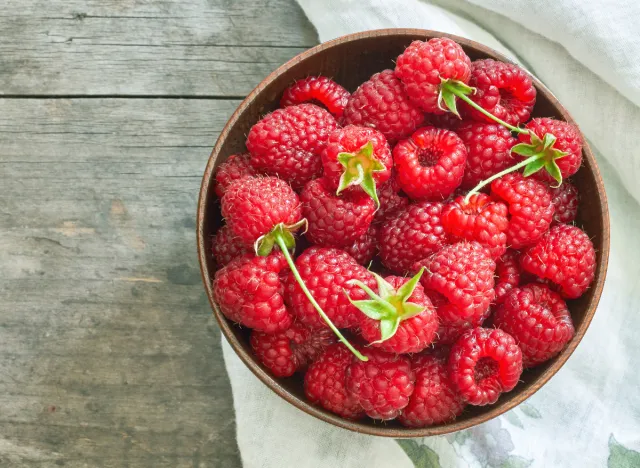
Nutrition [per cup (123 g)]:
Calories: 64
Fat: 0.8 g (Saturated Fat: 0 g)
Sodium: 1 mg
Carbs: 15 g (Fiber: 8 g, Sugar: 5.5 g)
Protein: 1.5 g
These delicious berries pack around 8 grams of fiber per cup. They also contain antioxidants such as quercetin, which studies show can support immune function and help reduce inflammation. Mohr explains, “Raspberries are a great source of antioxidants that provide anti-inflammatory benefits while offering a high dose of fiber for digestion. Including them in your diet can help regulate bowel movements and promote gut health.”
Apples
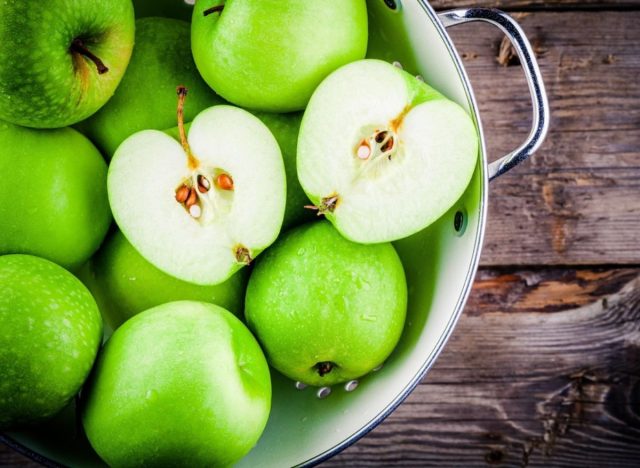
Nutrition [per one medium apple (154 g)]:
Calories: 80
Fat: 0 g (Saturated Fat: 0 g)
Sodium: 0 mg
Carbs: 21 g (Fiber: 4 g, Sugar: 16 g)
Protein: 0 g
With their combination of soluble and insoluble fiber, apples are fantastic for digestion and help keep you feeling full longer. According to a 2015 study published in Nutrients, apples are loaded with polyphenols, especially in the skin, which support heart health and may help regulate blood sugar levels.
“Apples are an excellent choice for both fiber and heart health benefits,” says Mohr. “The fiber in apples also plays a role in managing blood sugar and improving overall digestive health.”
Pears
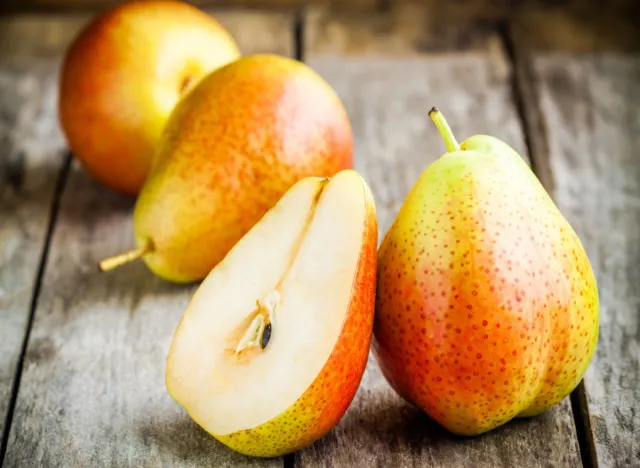
Nutrition [per one cup (113 g)]:
Calories: 50
Fat: 0 g (Saturated Fat: 0 g)
Sodium: 0 mg
Carbs: 14 g (Fiber: 1 g, Sugar: 5 g)
Protein: 0 g
Pears are particularly high in pectin, a type of soluble fiber that research says can support a healthy gut. Mohr notes, “Pears provide both fiber and hydration, which are key components of managing appetite and supporting digestion. They’re a great snack to keep you feeling full.”
Avocados
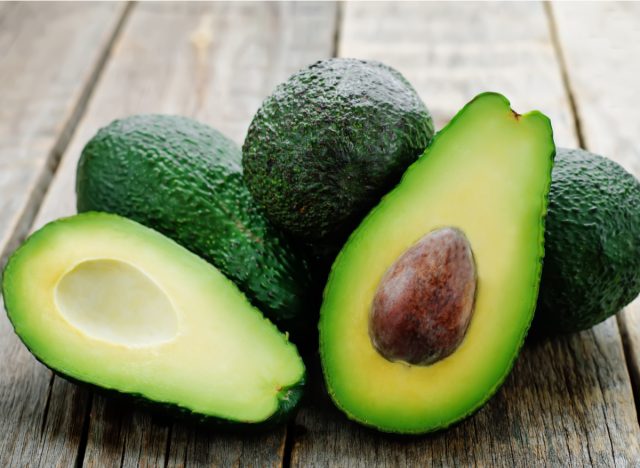
Nutrition [per 1/2 cup cubed (75 g)]:
Calories: 120
Fat: 11 g (Saturated Fat: 1.6 g)
Sodium: 5 mg
Carbs: 6 g (Fiber: 5 g, Sugar: <1 g)
Protein: 1.5 g
Unlike most fruits, avocados are high in both fiber and healthy fats. These essential nutrients help boost satiety and support heart health. A 2022 review found that eating avocados was associated with up to a 22 percent decrease in cardiovascular disease risk.
“The combination of fiber and healthy fats in avocados is fantastic for satiety and overall heart health,” says Mohr. “These fruits are a nutrient-dense option for boosting fiber intake and promoting healthy fat consumption.”
Oranges
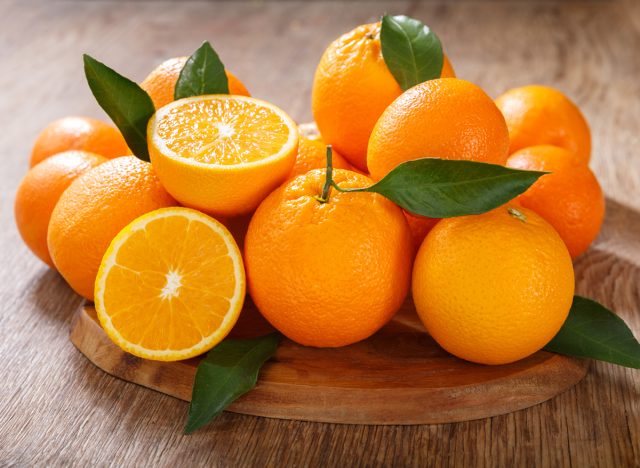
Nutrition [per cup (165 g)]:
Calories: 86
Fat: 0 g (Saturated Fat: 0 g)
Sodium: 15 mg
Carbs: 20 g (Fiber: 3 g, Sugar: 14 g)
Protein: 1.5g
“Oranges are not only great for immune support with vitamin C, but the fiber they contain can help improve digestion and keep your gut healthy,” says Mohr. Besides their high vitamin C and fiber content, oranges also contain flavonoids like hesperidin, which can help boost circulation and combat inflammation according to research.
Blackberries
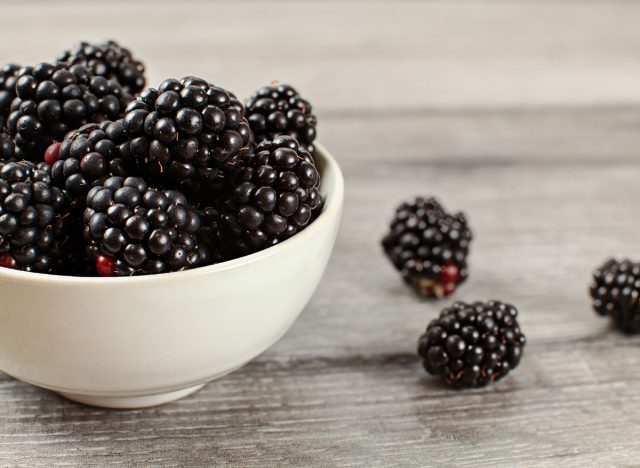
Nutrition [per one cup (144 g)]:
Calories: 62
Fat: <1 g (Saturated Fat: 0 g)
Sodium: 1 mg
Carbs: 14 g (Fiber: 8 g, Sugar: 7 g)
Protein: 2 g
Blackberries are another nutritional powerhouse, offering a generous 8 grams of fiber per cup. Mohr tells us, “Blackberries’ deep color comes from anthocyanins, powerful antioxidants that protect cells and support overall health.”
Kiwi
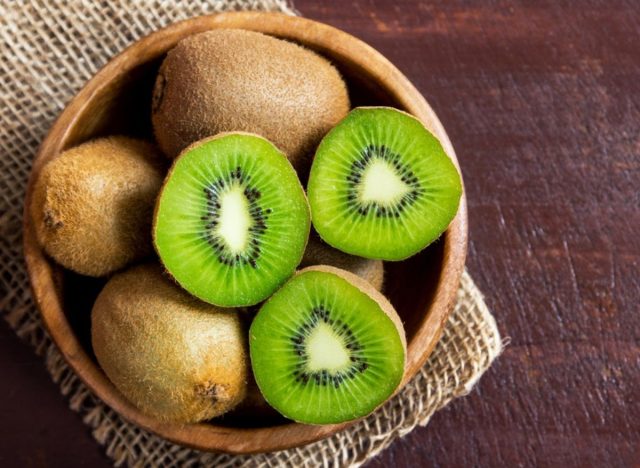
Nutrition [per one kiwi (75 g)]:
Calories: 44
Fat: <1 g (Saturated Fat: 0 g)
Sodium: 4 mg
Carbs: 11 g (Fiber: 2 g, Sugar: 7 g)
Protein: 10 g
Kiwi is another fiber-rich fruit that’s fantastic for digestive health as it contains both soluble and insoluble fiber. “Kiwi is not only great for digestion but also offers significant immune-boosting properties thanks to its high vitamin C content,” says Mohr.
Figs
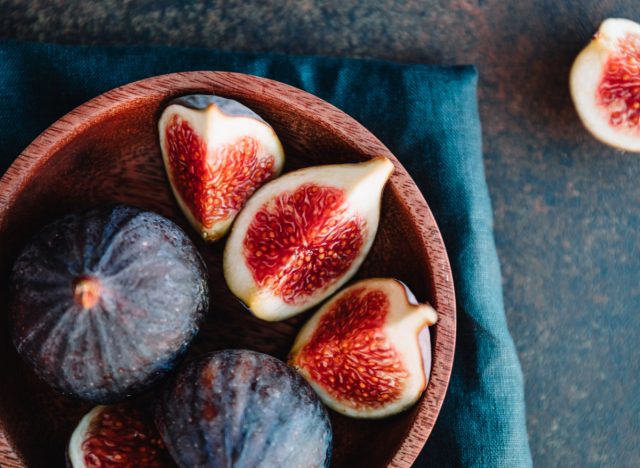
Nutrition [per one medium fig (50 g)]:
Calories: 37
Fat: <1 g (Saturated Fat: 0 g)
Sodium: 0.5 mg
Carbs: 10 g (Fiber: 1.5 g, Sugar: 8 g)
Protein: 0 g
“Figs provide a natural sweetness along with fiber and minerals that promote bone health,” Mohr explains. “They can be a great option for healthy, fiber-packed desserts.”
Pomegranate
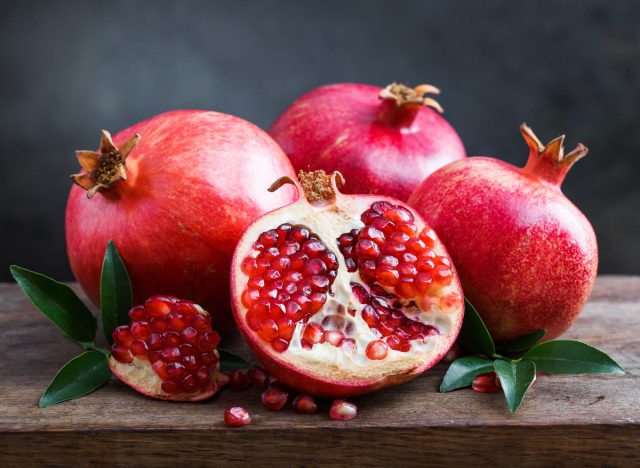
Nutrition [per 1/2 cup arils (87 g)]:
Calories: 72
Fat: 1 g (Saturated Fat: 0 g)
Sodium: 3 mg
Carbs: 16 g (Fiber: 3.5 g, Sugar: 12 g)
Protein: 1.5 g
Pomegranate arils, the edible seeds of the fruit, are packed with fiber and antioxidants, studies show. Mohr tells ETNT, “Pomegranate arils are a fantastic fruit to add to your diet for both fiber and antioxidants. They’re a great seasonal treat that adds flavor and nutrition to any dish.” Pomegranate arils can be sprinkled over salads, added to smoothies, or eaten on their own.
Papaya
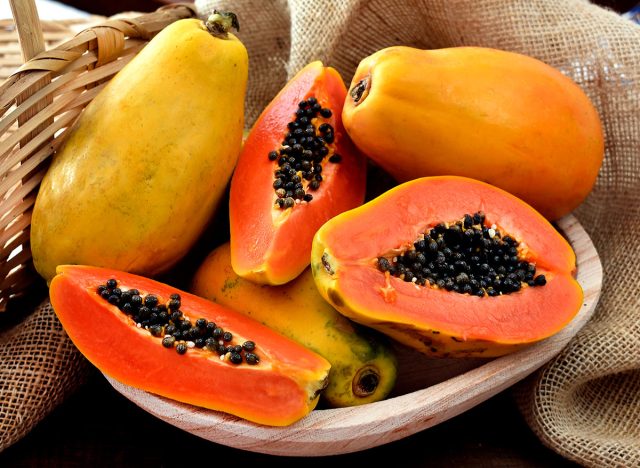
Nutrition [per one cup (145 g)]:
Calories: 62
Fat: <1 g (Saturated Fat: 0 g)
Sodium: 12 mg
Carbs: 16 g (Fiber: 3 g, Sugar: 11 g)
Protein: 1 g
Papaya is a tropical fruit that contains about 3 grams of fiber per cup. It’s also packed with vitamin C and a digestive enzyme called papain, which research says can help break down hard-to-digest proteins. “Papaya is a great option for improving digestion, and the fiber it provides supports gut health,” says Mohr. “Plus, its vitamin C content helps strengthen the immune system, making it an excellent all-around fruit for health.”.” The high water content in papaya also contributes to hydration and supports healthy skin.
